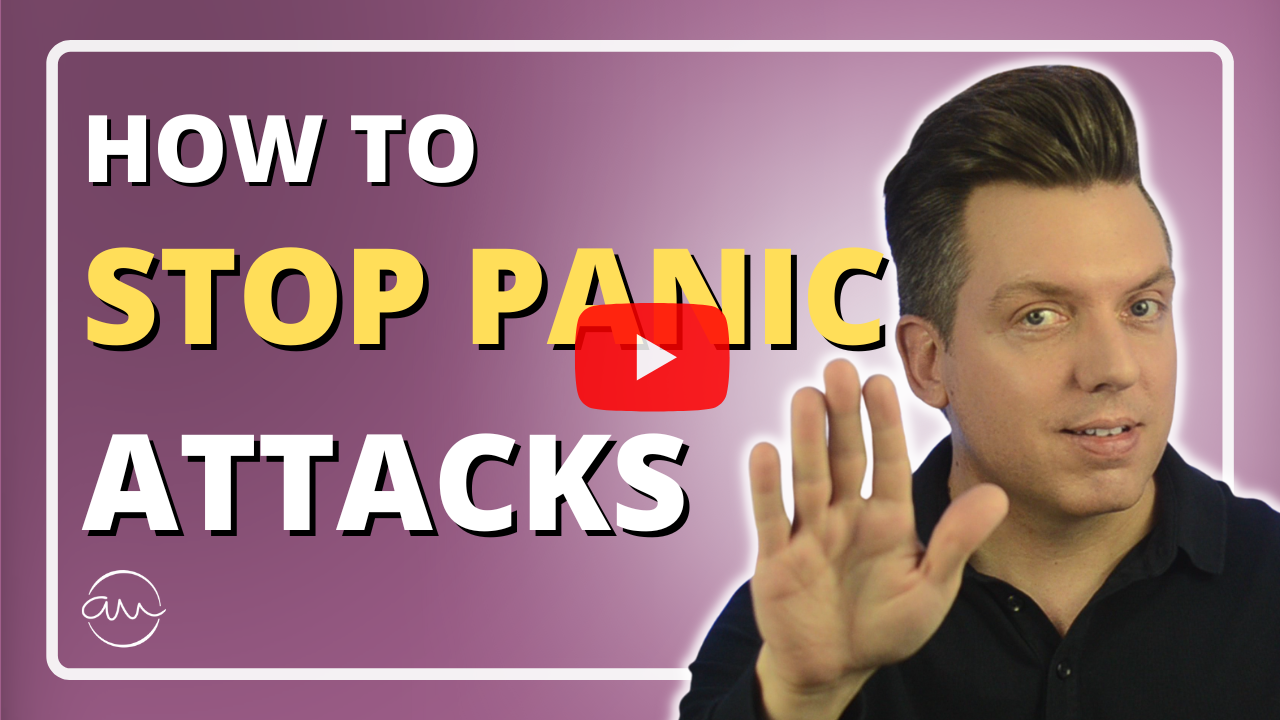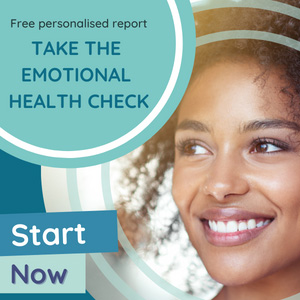If you've had a panic attack, it's common to become fearful of having another one. And this fear can become all-consuming and lead to constant worry and anticipation of future attacks. And when this happens, it means you're teaching your brain that your own anxiety is dangerous, it creates a vicious cycle in your brain that means you're increasingly on the lookout for even the smallest sign of anxiety, and then responding to it with an increasingly exaggerated fight or flight response.
The good news is you can stop panic attacks happening by following these three powerful steps, and when you do, it will retrain your brain, with practice, so you don't perceive anxiety as dangerous, allowing your fight and flight response to stand down more easily, and that's the key to overcoming panic attacks altogether.
Watch my video, 3 Steps To Stop Panic Attacks
Learn more about the acceptance method and how this helps you overcome recurring panic attacks.
1. Notice Your Triggers
Why do panic attacks occur?
Panic attacks happen when our body's natural fight or flight response gets triggered in a situation that doesn't warrant it. This can be due to high levels of stress, underlying anxiety disorders, or specific triggers that elicit fear or intense anxiety. The body reacts with physical and emotional symptoms, leading to a sudden and overwhelming sense of panic. So, in this step
How can I reduce the occurrence of panic attacks?
Start by noticing the tiggers that lead to panic attacks and you can do this by spotting the connection between bodily symptoms and catastrophic thoughts. Because we know that panic happens when you worry about your bodily symptoms, (those physical feelings trigger panic because the changes in your body remind you of anxiety).
Triggers can vary from person to person, but they often involve certain situations or environments that elicit physical and emotional responses reminding you of previous panic attacks. By understanding these triggers, you can better manage your anxiety and fear.
External Triggers can include certain places or situations that have been associated with panic attacks in the past can act as triggers. Examples include crowded spaces, enclosed areas, heights, public speaking, or even conflicts with your partner. Everyday occurrences like alarming sounds or time pressure can also evoke anxiety and panic.
Internal Triggers such as past memories and thoughts can also be the catalyst for anxiety and panic. Engaging in conversations with friends or encountering specific situations may bring up old memories, distressing thoughts, and intrusive feelings. Even the mere recollection of certain events or thoughts can evoke a slight sense of anxiety.
And so, it's important to remember that dwelling on these changes or increasing your focus on them can make them more noticeable and amplified, leading to more worry and catastrophising. By acknowledging and understanding these triggers, you'll be able to anticipate anxiety coming and be able to choose a better way of responding.
2. Spot the Propaganda!
Why do I experience negative thoughts during a panic attack?
The primitive, emotional part of your brain plays a crucial role in your survival instincts. It tends to be reactive and prone to negative biases. During a panic attacks, the emotional brain remembers the experience as a threat and creates associations between triggering situations and feelings of fear or panic. Which can lead to the generation of exaggerated or distorted signals, which we refer to as "propaganda."
When anxiety rises and your brain creates a cycle of fear and physical sensations. It starts with a small release of adrenaline, which leads to physical symptoms like chest tightness. This confirms the initial belief that something is wrong, causing the brain to release more adrenaline. As a result, the panic cycle intensifies, reinforcing the association between triggers and panic attacks.
How can I take control of negative thinking and to counteract propagandistic thoughts?
To spot propagandistic thoughts, it's essential to develop a keen awareness of negative or distorted thinking patterns. When these thoughts arise, question their validity and challenge them. The aim here is to stop thinking about it what's happening and therefore worrying. And this is the secret to avoiding panic attacks altogether. Keep reading to find out how in step 3.
3. Accept Your Feelings (Don't Fight Panic)
How do you stop thinking and worrying about panic attacks?
It starts with acceptance of what's happening to you. Now this may seem counterproductive, but it is a powerful tool that helps you stop the panic cycle of worry and fear. When you adopt an attitude of acceptance, it helps you cope better with unpleasant symptoms and allows you to build healthier responses to triggers which can break the cycle of panic.
How can I practice acceptance during a panic attack?
By consistently adopting an accepting and non-reactive attitude towards panic, you can gradually reduce its intensity and frequency. This practice encourages a sense of calm and control, conditioning your responses over time. Here's how you do it:
- Face and accept panic:
- Accept your body's reactions:
- Float with the sensations:
- Allow time to pass:
Allow yourself to experience the sensations and feelings of panic without resistance or judgment. A simple constructive attitude to cultivate is one that says OK here it is again. I can allow my body to go through its reactions and I can handle this. I've done it before.
Instead of fighting against them, accept that you are experiencing panic and recognise that it is temporary and harmless. Let go and allow your body to go through its reactions without reacting negatively. And the key here is to really watch or observe your changes in bodily sensations no matter how unusual or how cold comfortable it feels without reacting. Which creates a positive reaction and reference point for future responses.
Instead of trying to control or escape from the sensations of panic, move with them. Make reassuring statements to yourself, such as "This will pass" or "I can handle it now." You could even make a list of coping statements for yourself and be prepared.
Remember that panic attacks are time-limited, typically peaking and subsiding within a few minutes. Allow yourself to flow with the bodily reactions caused by the surge of adrenaline, as much of it will metabolise and be reabsorbed within three to five minutes, and as soon as that happens you will start to feel better.
What is the relationship between ongoing stress, anxiety, and panic attacks?
Ongoing stress can lead to anxiety, which acts as a catalyst for panic attacks. It's crucial to address and reduce overall anxiety levels to prevent panic attacks from occurring. So, it's really important to also start doing things which help you reduce stress and anxiety generally. In the long term that means you'll have a calmer mind and body and your reactions and behaviours will more rational too. And seeking help from a professional therapist, particularly for psychological therapies such as Cognitive-Behavioural Therapy (CBT) and Hypnotherapy can provide practical coping skills and techniques to manage anxiety effectively.
In my clinical practice online, I combine aspects of CBT with solution focused therapy and hypnosis. And that really helps clients reduce the impact of anxiety and stress as they tap into their inner resources and develop practical solutions to overcome panic and start living life to the full again.
How does solution focused hypnotherapy work for panic attacks?
Solution Focused Hypnotherapy helps in a number of ways, firstly by reducing underlying anxiety levels, which can make the occurrence of panic attacks less likely. This helps you gain greater control over your emotions, reducing the intensity of emotional arousal in triggering situations.
Secondly, by working with the subconscious mind and its behavioural patterns and templates in your brain, hypnotherapy helps you replace unhelpful and unwanted responses with more appropriate ones. This empowering process equips you with healthier coping mechanisms, empowering you to navigate stress with ease. With the guidance of hypnotherapy, you can cultivate a sense of calm, regain control, and foster positive change for long-lasting emotional well-being.
How do I start online hypnotherapy for panic and anxiety?
If you'd like to explore how hypnotherapy could help you without obligation, please get in touch for a free initial chat with Andrew to explore your situation and discover what your personalised hypnotherapy program might look like.








